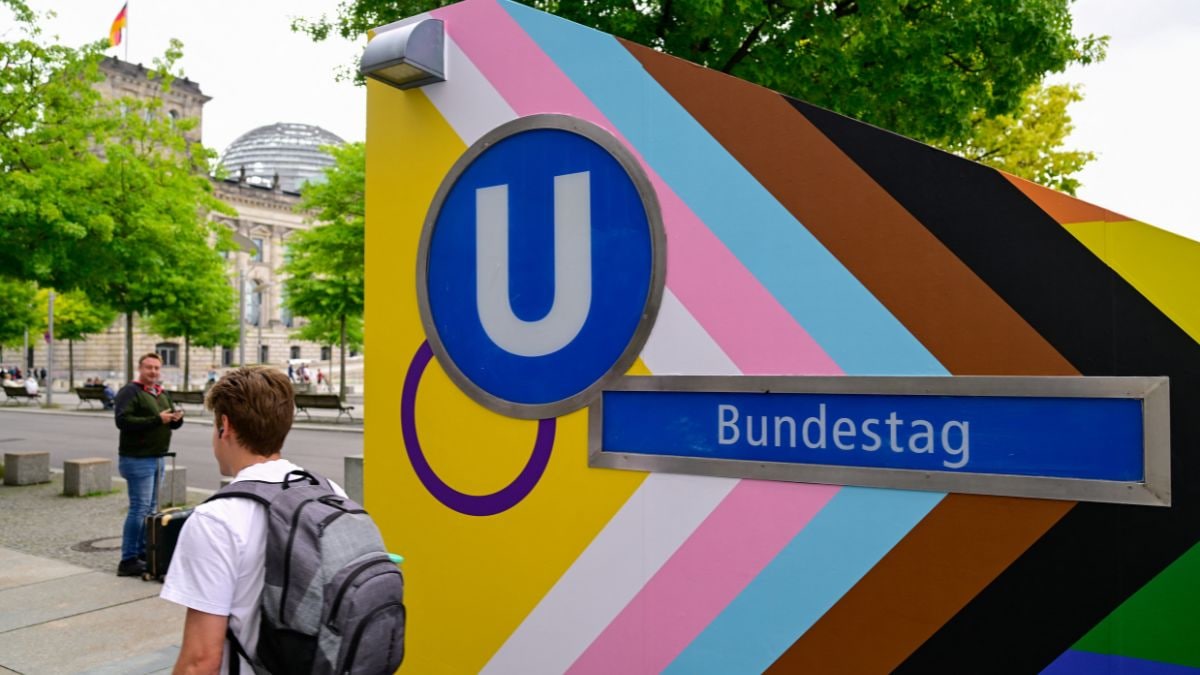Germany is now offering a Freelance Visa, officially known as the ‘Freiberufler Visa’, which allows individuals to live and work there for up to a year, or potentially longer. This visa lets eligible applicants work independently without needing a full-time employer, provided they can show proof of income and adequate financial resources. The visa fee is 75 euros (roughly Rs 7,500), which is considerably lower than what many other countries chargeread more
In what is being seen as positive news for many Indian travellers, Germany has started offering a Freelance Visa, officially called the Freiberufler visa.
Germany is a popular choice for both visitors and creative workers because of its cultural appeal and standard of living.
For many, it has always been a place for short trips, Schengen stamps, and winter holidays.
Now, with this visa introduced by Berlin, you can live and work in Germany for up to one year, or possibly longer.
STORY CONTINUES BELOW THIS AD
So, what is this visa? How can you apply for it? Who can apply?
Let’s take a look:
What is Germany’s Freelance Visa?
The visa lets individuals work independently in the country without needing a full-time employer, as long as they can provide proof of employment and sufficient financial resources.
This residence permit allows non-EU citizens to legally live and work in Germany, provided they belong to certain professional groups.
Unlike a tourist visa, which does not allow any kind of work, or a work visa that ties you to a specific employer, this visa gives eligible individuals the flexibility to manage their own profession.
For many, it has always been a place for short trips, Schengen stamps, and winter holidays. AFP/File Photo
It is aimed at people in liberal professions, such as journalists, researchers, artists, and those in regulated fields like engineering, law, and medicine, who are looking to live and work in one of Europe’s strongest economies.
Who is eligible?
As per the German Missions in India, Section 18 of the German Income Tax Act recognises the following professions as freelance employment:
-
Independent researchers and scientists
-
Artists, musicians, and teachers
-
Lawyers, notaries, and tax advisers
-
Patent lawyers
-
Engineers and architects
-
Journalists and photojournalists
-
Interpreters and translators
-
Physiotherapists and medical workers
-
Economists and business consultants
-
Dentists and veterinarians
-
Commercial chemists
-
Accountants
-
Pilots
Some professions may have additional rules or conditions. It is important to consult the relevant German authorities, such as the Aliens Authority or Chamber of Commerce, to confirm your eligibility before applying.
What documents are required for the application?
To apply for the German Freelance Visa, you must submit several documents to show that you are professionally qualified and financially independent.
Below is the complete list:
-
A valid passport with at least two blank pages, issued within the past 10 years
-
Proof of freelance work and educational qualifications, such as a university degree or other recognised higher education certificate
-
Evidence of financial stability for one year, showing a minimum monthly income of approximately 1,280.06 euros (around Rs 1.27 lakh)
-
A clear and detailed outline of your freelance plans, along with your curriculum vitae (CV)
-
Proof of contacts or commitments from potential clients in Germany or Europe
-
Valid health insurance coverage
-
For applicants over 45, documents related to pension plans, savings, or retirement benefits
-
Confirmation of accommodation or address in Germany
-
Payment receipt for the visa fee (75 euros or around Rs 7,500)
The visa lets individuals work independently in the country without needing a full-time employer. AFP/File PhotoHow can Indians apply for the visa?
For Indian applicants, the process generally starts with applying for a National D Visa before entering Germany.
Here is a step-by-step guide:
Step 1: Fill out and print the National D Visa application form.
Step 2: Book an appointment at the nearest German embassy or consulate, such as the German Missions in India.
Step 3: Gather all required documents mentioned above. Make sure they meet the embassy’s format and language guidelines.
STORY CONTINUES BELOW THIS AD
Step 4: Visit the embassy or consulate in person to submit your application. Your biometric data will also be collected during this visit.
Step 5: If approved, the National D Visa will be issued for a period of three to six months.
Step 6: After reaching Germany, register your local address and apply for a long-term freelance residence permit at the nearest Foreigners’ Office within two weeks.
Types of Freelancer Visas in Germany
Your eligibility for a freelancer visa in Germany depends on the kind of work you do. There are two main categories:
Freelancer (Freiberufler)
This category includes professionals who offer their services independently, often within the liberal professions. Examples include teachers, journalists, translators, therapists, engineers, IT experts, architects, lawyers, and doctors.
Self-employed (Selbständiger/Gewerbetreibender)
If your work does not fall under the liberal professions, you may be considered self-employed. This typically applies to those who run a business or hold a trade licence.
Can you work for a German company on this visa?
No, this visa is meant for independent work only. If you plan to take up part-time or full-time employment with a German company, you will need to apply for a separate work visa that allows for employer-based jobs.
